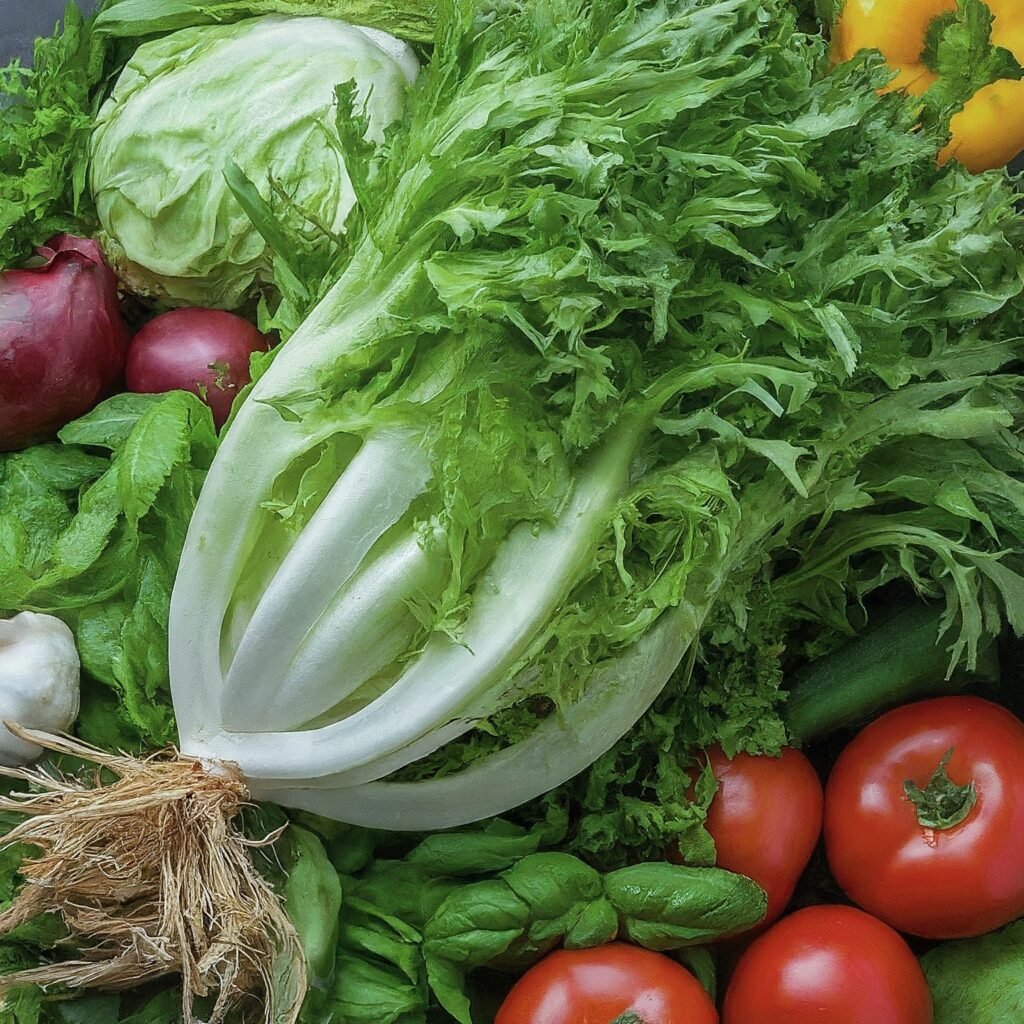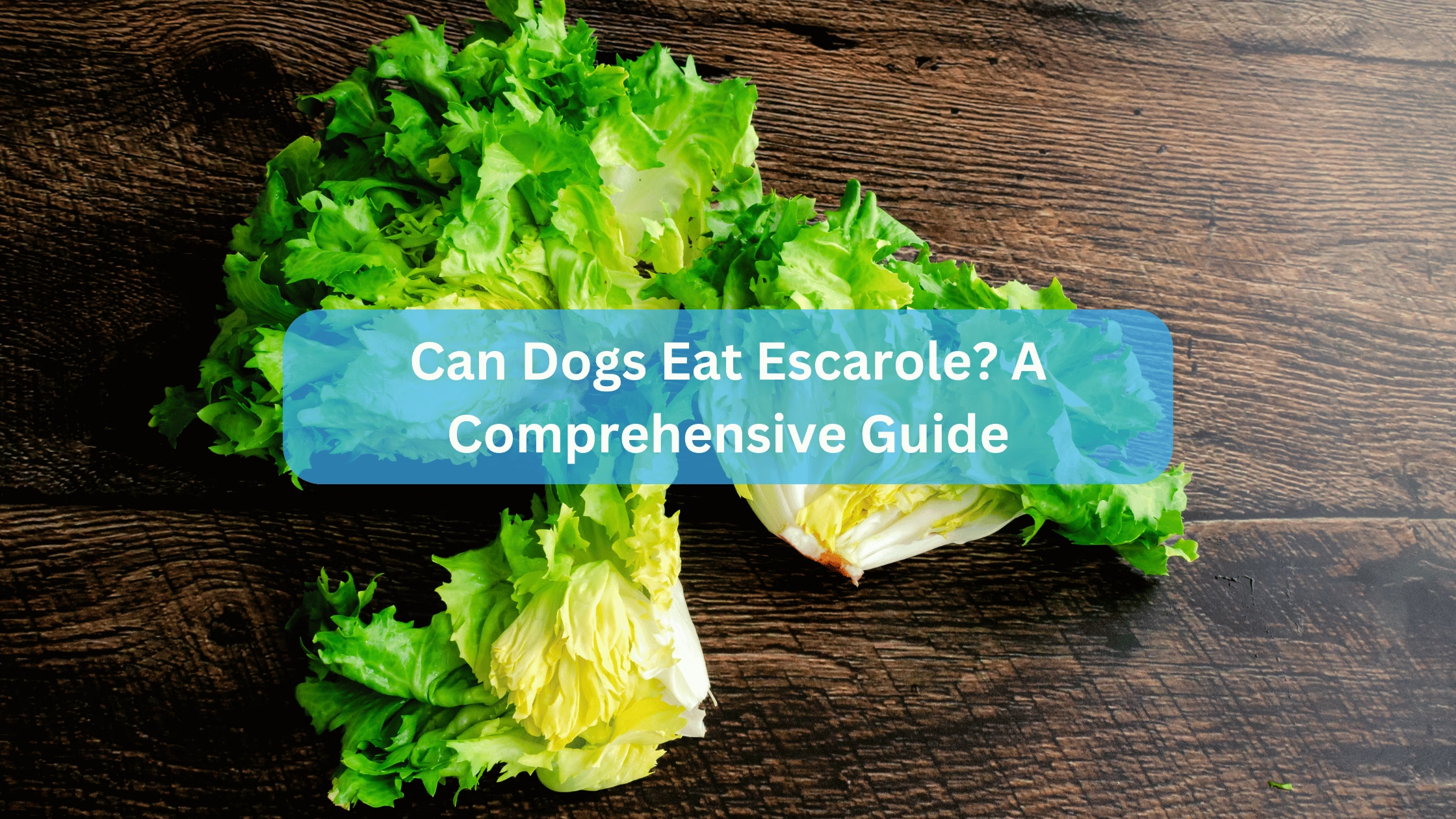Can Dogs Eat Escarole? When it comes to feeding our furry friends, many pet owners often wonder about the safety and nutritional value of various human foods.
One such food that may come to mind is escarole, a leafy green vegetable.
This article will explore whether dogs can eat escarole, its benefits, potential risks, and how to incorporate it into your dog’s diet safely.
What is Escarole?

Escarole is a type of leafy green belonging to the chicory family. It has a slightly bitter taste and is often used in salads, soups, and cooked dishes.
Packed with vitamins A, C, K, and several B vitamins, escarole is a nutritious addition to human diets. But what about our canine companions?
Can Dogs Eat Escarole?
Yes, dogs can eat escarole! This leafy green is safe for dogs and can provide several health benefits. However, as with any new food, moderation is key.
Benefits of Escarole for Dogs
- Nutrient-Rich: Escarole is loaded with essential vitamins and minerals, including:
- Vitamin A: Supports vision and immune function.
- Vitamin C: Acts as an antioxidant and aids in immune health.
- Vitamin K: Important for blood clotting and bone health.
- Fiber: Promotes healthy digestion.
- Low in Calories: Escarole is low in calories, making it a great treat for dogs that need to maintain a healthy weight.
- Hydration: Being high in water content, escarole can help keep your dog hydrated.
Risks of Feeding Escarole to Dogs
While escarole is generally safe for dogs, there are a few considerations to keep in mind:
- Digestive Upset: Overconsumption of escarole can lead to gastrointestinal issues such as diarrhea or bloating. Always introduce new foods gradually.
- Choking Hazard: Ensure that the escarole is chopped into small, manageable pieces to prevent choking, especially for smaller breeds.
- Allergies: Monitor your dog for any signs of allergies or adverse reactions when introducing escarole for the first time.
How to Prepare Escarole for Dogs
When feeding escarole to your dog, follow these simple steps:
- Wash Thoroughly: Rinse the escarole under running water to remove any dirt or pesticides.
- Chop into Small Pieces: Cut the leaves into small, bite-sized pieces to make it easier for your dog to chew and digest.
- Serve Raw or Cooked: You can serve escarole raw as part of a salad or lightly steam it to enhance its digestibility.
- Mix with Other Foods: Consider mixing escarole with your dog’s regular food or using it as a healthy topper for their meals.
How Much Escarole Can Dogs Eat?
The amount of escarole you can safely feed your dog depends on their size and dietary needs. A general guideline is:
- Small Dogs: 1-2 tablespoons of chopped escarole per meal.
- Medium Dogs: 2-3 tablespoons per meal.
- Large Dogs: 3-4 tablespoons or more, depending on their daily caloric intake.
Always consult your veterinarian for personalized advice on portion sizes, especially if your dog has underlying health conditions.
Frequently Asked Questions
Can all dogs eat escarole?
Yes, most dogs can eat escarole, but always introduce it slowly and in moderation to avoid digestive issues.
Are there any vegetables dogs should avoid?
Yes, certain vegetables like onions, garlic, and mushrooms can be toxic to dogs and should be avoided.
Can escarole help with my dog’s weight?
Yes, due to its low-calorie content and high fiber, escarole can be a beneficial addition to a weight management plan for dogs.
What other greens are safe for dogs?
Other safe greens include spinach, kale, and broccoli, but always check for specific dietary needs or restrictions.
How should I store escarole?
Keep escarole in the refrigerator in a sealed container or bag to maintain freshness. Use it within a few days for the best quality.
Also Read: Can Dogs Eat Dove Meat? A Comprehensive Guide
Also Read: Can Dogs Eat Mangosteen? A Comprehensive Guide
Conclusion
In summary, escarole is a nutritious and safe vegetable that dogs can enjoy in moderation.
Its health benefits, combined with its low-calorie content, make it an excellent addition to your dog’s diet.
However, always monitor your dog for any adverse reactions and consult with your veterinarian if you have any concerns.
By incorporating escarole thoughtfully, you can provide your canine companion with a tasty and healthy treat!
Sources:
- https://www.purina.in/articles/dogs/feeding/what-dogs-eat/harmful-dog-foods
- https://www.healthline.com/nutrition/human-foods-for-dogs
- https://www.candogseatit.com/fruit-veg/escarole







